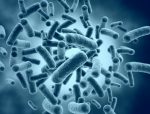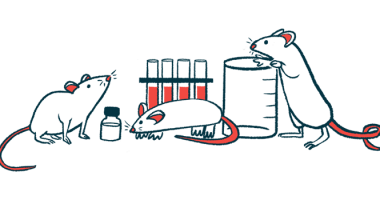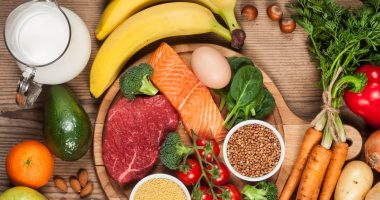Boy Loses Weight on High-fiber Diet That Boosts His Folate Levels

Folate produced by a specific kind of gut bacteria likely contributed to weight loss in a teenager with Prader-Willi syndrome (PWS) who was given a high-fiber diet for several months.
A trio of researchers at Shanghai Jiao Tong University in China described the case in a study, “Metagenome-Scale Metabolic Network Suggests Folate Produced by Bifidobacterium longum Might Contribute to High-Fiber-Diet-Induced Weight Loss in a Prader–Willi Syndrome Child,” published in the journal Microorganisms.
The human digestive tract is home to billions of bacteria and other microscopic organisms, collectively called the gut microbiome. The activity of these bacteria can have substantial effects on health. For example, many bacteria make metabolites (small molecules) that affect the activity of bodily systems.
A person’s health and lifestyle also can affect the gut microbiome — for instance, changes in diet can alter which types of bacteria are more or less common in the gut microbiome. Better understanding of the interconnecting ways that the gut microbiome modulates health could be useful for designing better interventions for health conditions like obesity. A hallmark symptom of PWS is hyperphagia (insatiable hunger), and many patients become obese.
According to the study, a 14-year-old boy with PWS was given a high-fiber diet for 105 days, or just over three months. Over the course of dieting, the boy’s weight decreased from 140 kg (308 lbs) to 114 kg (251 lbs). Levels of inflammatory markers in his blood also decreased during this time.
At regular intervals during the diet, the researchers took samples of the boy’s stool and conducted analyses of the gut microbiome. They then used a series of sophisticated computer-driven analyses to identify likely changes in metabolites based on the changes in bacteria in the microbiome.
“The focus of this study was to screen for the functional microbial strains and metabolic pathways that might be important for weight loss during a dietary intervention,” the team wrote.
The diversity of the gut microbiome generally decreased after the boy started on the high-fiber diet, according to the team’s analyses. The researchers noted several types of bacteria whose levels increased after he started on the diet, including Bifidobacterium pseudocatenulatum, Faecalibacterium prausnitzii, and a species of Clostridium.
“These strains did not continuously increase, but instead fluctuated after being raised, which indicated a continuous balance among the community members,” the scientists wrote.
The amount of folate made by the gut microbiome was found to be negatively correlated with body mass index. In other words, the decrease in the boy’s weight was accompanied by an increase in folate levels. Folate, or folic acid, is a B vitamin used in the growth of new cells. Folate derivatives, the researchers noted, are known to have wide-ranging effects on health and disease.
Results of the analyses indicated that a major source of folate made by the gut microbiome was the bacterial species Bifidobacterium longum. Strains of Bifidobacterium longum are “a category of well-established and multifunctional probiotics,” the researchers wrote. Probiotics are microorganisms believed to maintain and boost a “healthy” gut microbiota.
“This systematic investigation suggested that, in this child, the weight loss effect might have mainly been achieved through increasing folic acid derivatives’ … secretion via the vitamin and cofactor metabolism by Bifidobacterium longum strains,” the researchers concluded.
Reduced levels of metabolites related to amino acids — the building blocks of proteins — also were associated with the boy’s weight loss.








